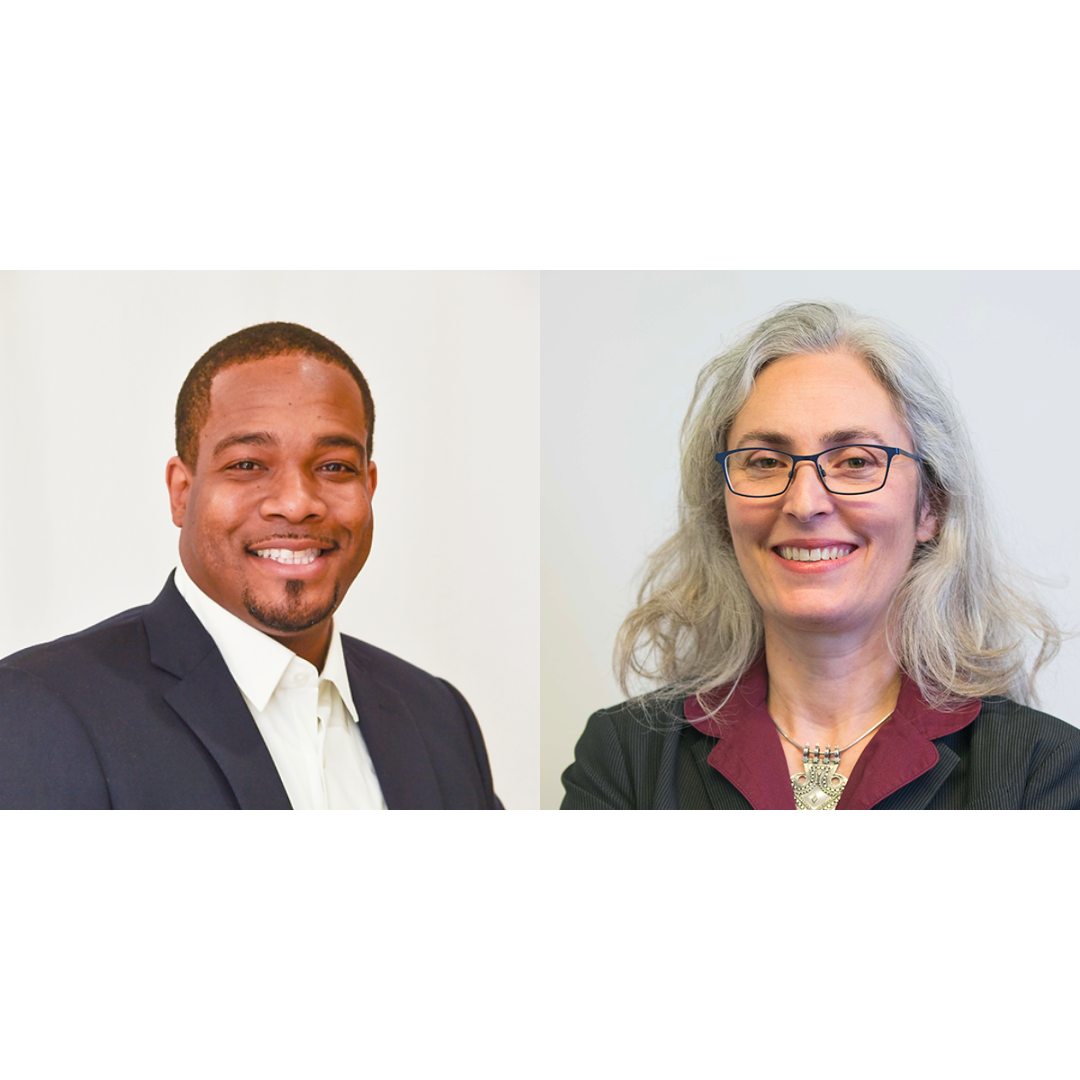Dr. DeMarc Hickson (left) & Dr. Julie Pulerwitz (GW) have been awarded a 2023 NIH CFAR Ending the Epidemic Supplement Award to design and pilot a piloting a group intervention to address intersectional stigmas, and support shared resiliency and HIV wellness, among Black sexual minority men in Washington DC.
Evidence suggests that stigma is a driver of both the HIV epidemic and low use of HIV services, and comorbid conditions like depression, among Black sexual minority men (SMM) and other marginalized groups. For Black SMM, multiple stigmatized identities related to sexual orientation, race, and HIV status (i.e., intersectional stigma) can lead to compounded negative effects on mental and physical health. Stigmatizing views that are internalized are also linked to poor mental health and inhibit the uptake of HIV services like PrEP and ART. Yet there are few evidence-based interventions in the US designed specifically to address the multiple stigmas and resulting mental health and HIV-related challenges that Black SMM face.
Their multi-disciplinary team consisting of a CBO, an international NGO, and an academic institution propose to adapt and assess a group-based cognitive behavioral therapy (CBT) model, used in international settings, to reduce stigma and promote shared resiliency, as well as HIV service use, among Black SMM in the Washington, DC area (a priority geography for the Ending the HIV Epidemic in the US initiative
that is characterized by high HIV incidence/prevalence among Black SMM). CBT is among the most impactful approaches for supporting mental health, and in recent years has been implemented in group settings for social support goals. Evidence from the study team’s RCT of an affirmative, HIV-status neutral group CBT model with 240 SMM and transgender women in Nigeria – which included 4 weekly sessions 2.5 hours in length – lays important groundwork for adapting in Washington, DC. Intervention content focuses on critical reflection around multiple stigmas, affirming identity, building cognitive behavioral therapy skills, shared resiliency in the face of stigma, and encouraging HIV self-care/wellness. The study is guided by the Implementation Research Logical Model, as well as the ADAPT-ITT framework for adapting evidence-based interventions to new contexts or populations.
In Aim 1, an affirmative group CBT intervention for adult Black SMM to promote HIV-related wellness will be adapted. In-depth interviews (IDIs) with 15 community/government stakeholders and service providers, and two focus group discussions with DC-based Black SMM (N=15) will be conducted, to assess optimal number/content of sessions, facilitators, and pilot recruitment procedures. In Aim 2, the program will be
piloted and assessed for acceptability, feasibility, and appropriateness, including potential to address stigma, via a 6-month pilot study with 60 Black SMM (5 groups of 12 each). Intervention sessions will be implemented by a DC-based CBO founded to meet Black gay men’s HIV and other health needs. Participants (including a subset of 20 people living with HIV) will complete a baseline and 3-month follow-up psycho-behavioral survey. IDIs with participants (n=10) and facilitators/service providers (n=10), will complement the surveys. Outcomes include intervention acceptability, feasibility, and appropriateness, including its potential for reducing stigma (both intersectional and internalized) and improving mental health and PrEP/ART use. In the future, they plan to rigorously test the model in the DC area and in new settings and vulnerable populations


